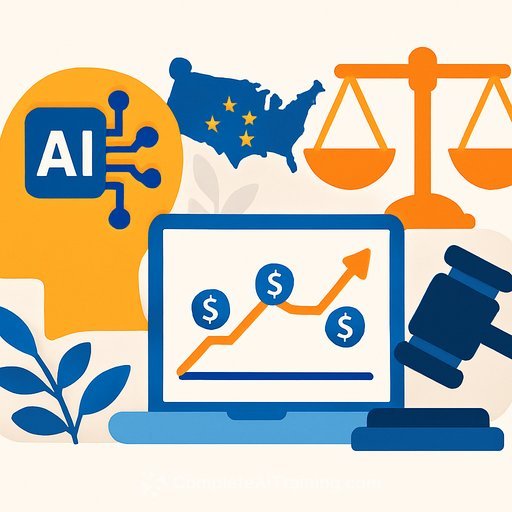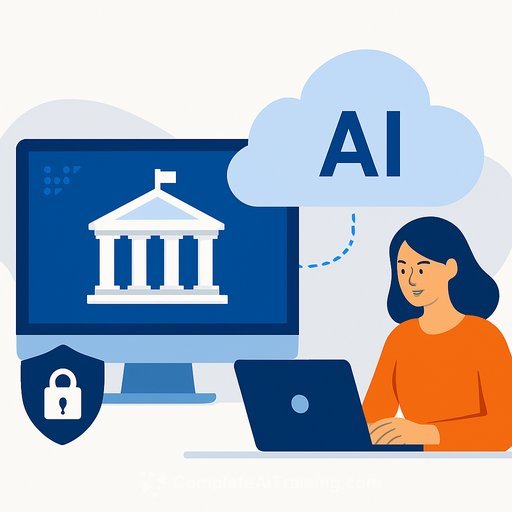AI creates a new antitrust puzzle
Artificial intelligence is creeping into pricing, hiring, inventory, and strategy. That's normal progress. The problem: some pricing tools can quietly turn markets into cartels - even if no human ever shakes hands on a deal.
Regulators are watching. Their concern is simple: if algorithms pull in competitors' data and spit out coordinated price moves, consumers pay more for the basics - groceries, rent, hotel rooms.
Why enforcers care
"Algorithmic price fixing may sound very high tech and convoluted, and in a way it is. But it is also known as plain old collusion between competitors," said Gail Slater, who leads DOJ's antitrust division. That's the core issue. New tools, same outcome.
Authorities in the U.S. and Europe have warned they'll treat AI-driven collusion like any other cartel. Expect more resources pointed at algorithmic pricing and data-sharing arrangements that push prices up.
The RealPage example
One case sits at the center of the debate: the Justice Department and several states allege RealPage gathered confidential data from competing landlords and used it to generate rental pricing strategies. The claim is that data-sharing through a third-party tool let landlords move prices together without direct contact.
In August, DOJ announced a settlement with Greystar, the country's largest landlord, over its use of RealPage's algorithm. Greystar agreed to stop sharing sensitive information with competitors and to stop using an algorithm that sets prices using competitors' data.
What courts are saying (for now)
The legal standard still matters. The Ninth Circuit recently tossed claims that Las Vegas Strip hotels colluded by feeding data into the same pricing software. The court said showing shared tools and data wasn't enough; there must be evidence of an agreement to follow the algorithm's outputs or proof of sharing non-public pricing information.
Translation: algorithms don't equal collusion by default. Prosecutors still need facts that show coordination or intent.
States are rewriting the rules
California just updated its antitrust laws. One amendment makes it illegal to use pricing software that relies on competitors' data. Another raises corporate penalties from $1 million to $6 million per violation and increases civil penalties to $1 million.
New York passed a law requiring disclosure of algorithmic pricing that's based on personal data. Lawmakers in Colorado, Maine, and Massachusetts are considering similar updates to cover algorithms outright.
What this means for government and industry
If you buy, fund, regulate, or manage services that touch pricing, the risk profile has changed. Compliance can't be an afterthought - it needs to be built into the model and the contract.
- Ban competitor data in pricing algorithms: No horizontal data pooling. No use of non-public competitor information, directly or via vendors.
- Require attestations from vendors: Written confirmation that models exclude competitors' confidential data and personal data beyond what's lawful and disclosed.
- Keep an audit trail: Logs of inputs, recommendations, overrides, and who approved what - especially around price changes.
- Set a human-in-the-loop policy: Algorithms can propose. Humans decide. Document any deviation from the tool's recommendations.
- Use kill switches and thresholds: If prices move in lockstep with competitors or exceed defined bands, trigger review or shutoff.
- Govern data sources: Inventory every input. Label what is public, proprietary, or sensitive. Strip signals that risk concerted outcomes.
- Update training and policies: Explicitly cover algorithmic collusion in antitrust training and communications with staff and vendors.
- Contract for compliance: Insert audit rights, data segregation clauses, and indemnities in all pricing-tool agreements.
The intent question
Courts may struggle with cases where there's no clear intent to fix prices. "Some algorithms, if there's a real lack of intent to fix prices … I think it's going to be hard to convince a jury that that's wrong," said Jeff Martino, an antitrust attorney. Clear facts showing an agreement or purposeful coordination still carry the day.
That doesn't mean companies are safe. If your tool uses competitors' non-public data and your team follows its recommendations, you're building the record regulators need.
For public agencies
- Procurement: Require disclosure of data sources, model logic summaries, and price-recommendation governance. Prohibit vendor cross-client data reuse without explicit, lawful permission that passes antitrust scrutiny.
- Monitoring: Use price surveillance to spot synchronized movements across vendors or markets serving your programs.
- Coordination: Share suspicious patterns with state AGs and DOJ. Preserve logs and communications.
For private-sector leaders
- Map your stack: Identify every product, market, and vendor touching price decisions.
- Run an antitrust risk review: Red-team scenarios where the model could infer or enforce coordinated pricing.
- Stand up an AI oversight group: Legal, data science, product, and audit in one room, with authority to pause tools.
What to watch next
DOJ has signaled more cases and deeper probes into algorithmic collusion. Europe is moving in parallel with similar scrutiny. Expect more settlements that force companies to stop sharing sensitive data and to rework their pricing stacks.
The takeaway is straightforward: pricing AI is permissible, collusion is not. Build for that line, prove you stay on the right side of it, and be ready to show your work.
Resources
Further learning
If your team needs practical training on AI oversight and risk, see curated options by role: AI courses by job.
Your membership also unlocks:






